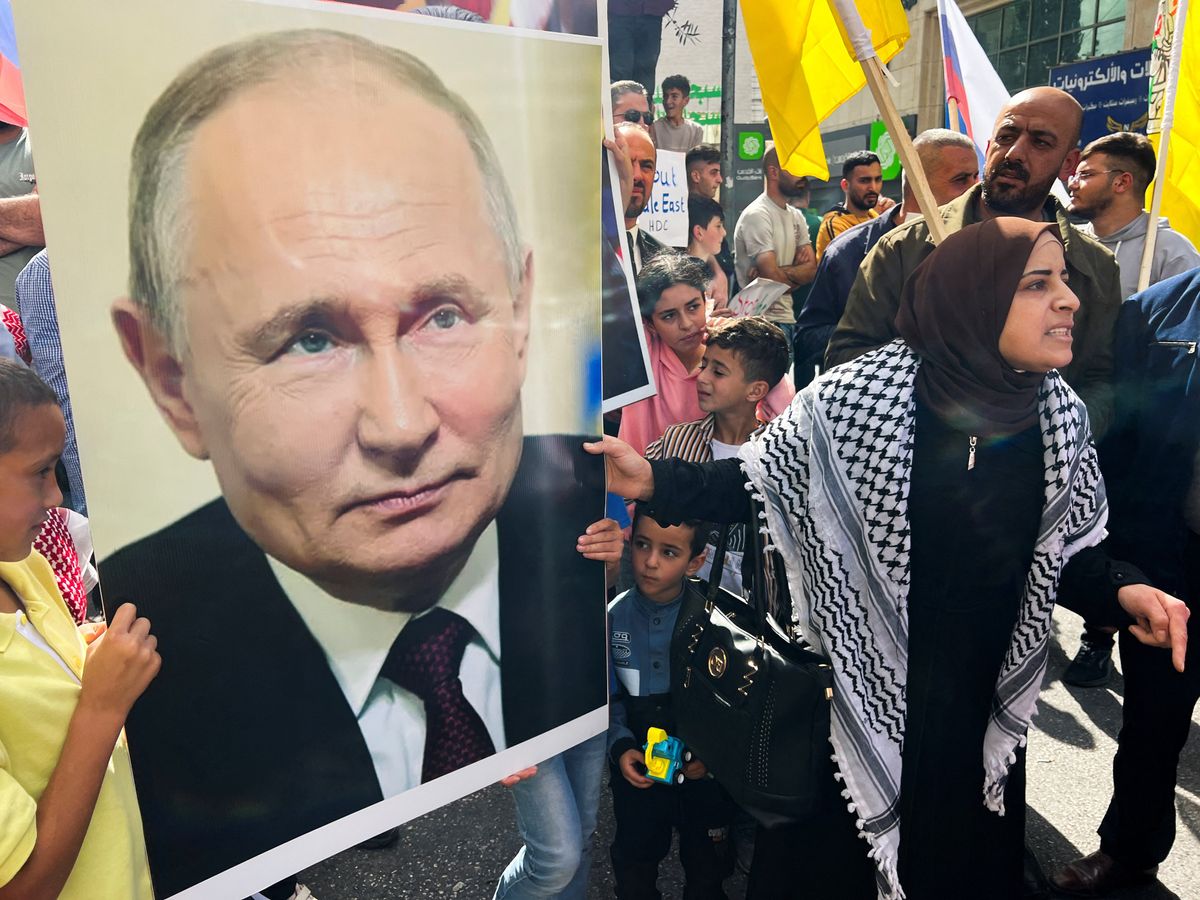Remember the invasion of Ukraine? Over the past several weeks, war in the Gaza Strip has drawn attention away from what was once the most covered conflict in the world.
You know who’s not mad about that? Vladimir Putin.
Even before the Hamas attacks of Oct. 7, polls showed US popular attention and support for Ukraine wavering. Then the leadership fiasco in the US House of Representatives raised the prospect of Republicans cutting US aid to Ukraine altogether.
Meanwhile, on the front lines, Kyiv’s counteroffensive has ground down, and as winter approaches, there are fresh questions about what, precisely, Ukrainian President Volodymyr Zelensky hopes to achieve.
With all of that already going his way, Putin is perfectly happy to see Western governments and media distracted by the Middle East. The Pentagon is even redirecting some of its weapons from Ukraine to Israel. That’s a win for the Kremlin, which has reportedly taken the opportunity to unleash its most ferocious artillery attack on Ukraine since last year.
More broadly, the conflict in Gaza itself is hardly the worst thing from Russia's perspective. A little unrest in the Middle East might bump up prices for oil, for one thing. And how could Putin — sworn enemy of the so-called “US-led world order” — pass up a chance to needle the United States about the latest regional unraveling?
“This is a clear example,” Putin recently quipped, “of the failure of the United States policy in the Middle East, which tries to monopolize any settlement between Israelis and Palestinians.”
Too much of a good thing? Still, there are reasons this latest conflict in the Holy Land might not be a blessing for the Russian leader.
For starters, it forces him to choose sides in a way he doesn’t seem to want to. It took Putin 10 full days to call Israeli Prime Minister Benjamin Netanyahu with condolences after Hamas’ brutal assault. And while Russia condemned the rampage, Putin has also invited Hamas officials to Moscow, where they called Russia “our closest friend.”
It’s a tricky balance for Putin. Bending toward the Palestinians puts Putin in line with mainstream opinion in the Arab world and much of the broader Global South, where sympathy for the Palestinians is strong. It also aligns Putin firmly with his allies in Tehran, the biggest backers of Hamas.
But Putin has also sought closer ties with Israel in recent years, in part to avoid clashing over Syria, where Russian forces have backed the regime of Bashar Assad for almost a decade. If Putin draws too close to Hamas, he runs the risk that Netanyahu could change his mind about giving advanced Israeli weapons to Ukraine — something the Israelis have so far chosen not to do.
Careful what you wish for, Vladimir Vladimirovich. A wider regional war between Israel and Iran could turn into a nightmare for Putin, according to Hanna Notte, an expert at the James Martin Center for Nonproliferation Studies.
“As long as the war in Gaza remains confined,” she says, “the benefits for Russia outweigh the risks. But the moment that this conflict escalates, the risks for Russia could be considerable.”
One key vulnerability is those Russian forces in Syria, an Iranian ally that could easily be drawn into a wider war with Israel. Were that to happen, Putin could face a terrible choice: Watch Syria get pounded by Israeli air power, or put his own troops at risk to stop it.
“Russia has a presence in Syria,” says Notte, “but it does not have the capacity or the bandwidth to significantly scale up in order to protect its position.”
The upshot: Putin is more than happy for fresh unrest in the Middle East to put heat on his Western adversaries — but if things escalate, he may not be able to stay out of the fire himself.





